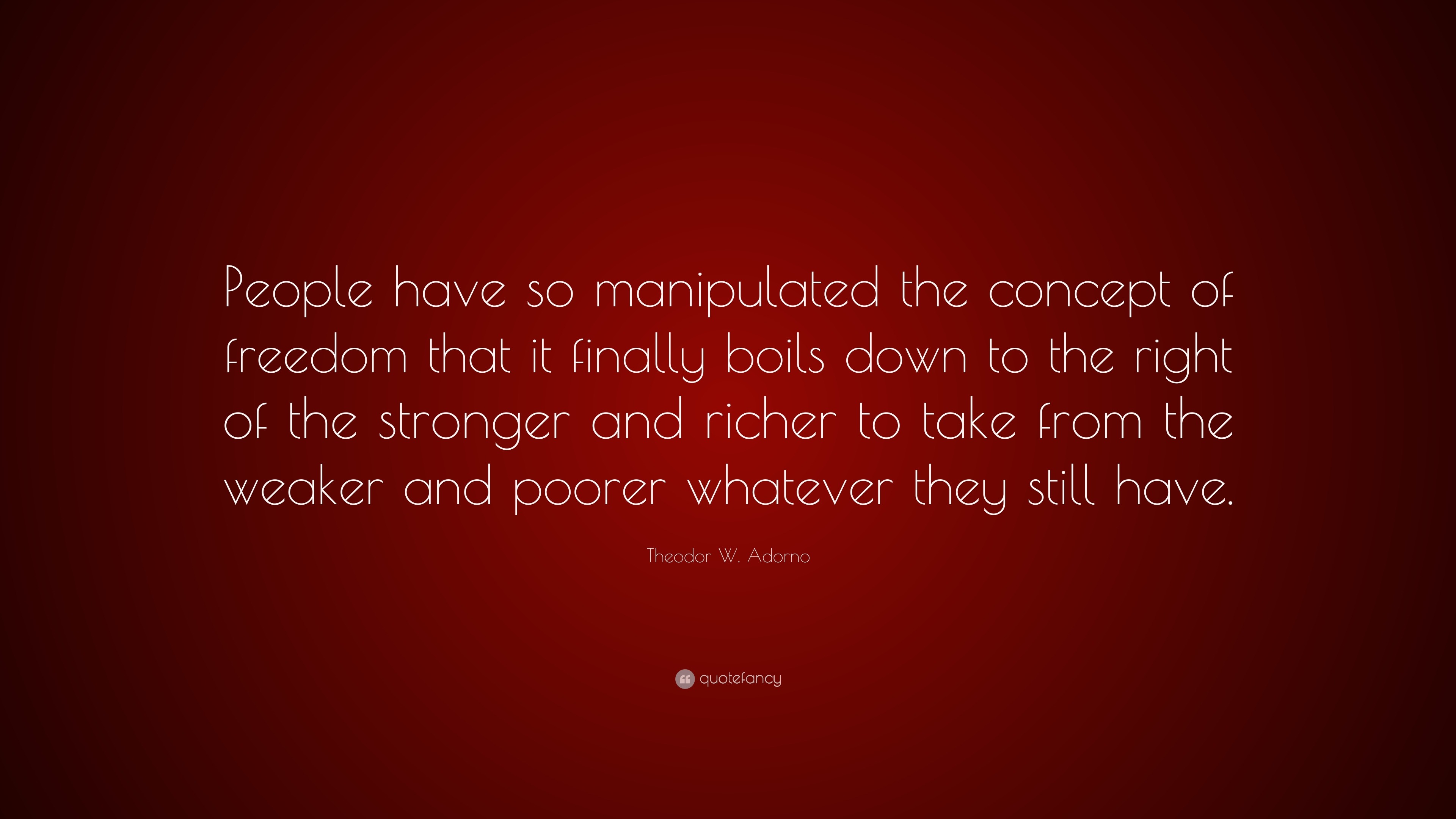
Accordingly, Adorno argues that western culture and philosophy must acknowledge their own finitude they must use new methods to repair the collapse of the traditionally dialectical relationship between themselves and barbarism. ‘Auschwitz negates all systems, destroys all doctrines’ (Mandel 2006: 31), says Elie Weisel. The sole adequate praxis following Auschwitz is to ‘work our way out of barbarism’ (Adorno 2012: 86), to provide escape routes from the ontologically aporetic condition imposed on us by our mere survival (Nosthoff 2014: 2). This does not mean that Adorno wishes to silence poets, artists and philosophers in the name of ‘that which happened’ (Baer 2000: 199) On the contrary, Adorno considers culture and philosophy as necessary for humankind to address the ‘new categorical imperative’ imposed on us by Hitler: ‘to arrange thinking and conduct, so that Auschwitz never repeats itself’ (Shuster 2014: 71). Therefore, argues Adorno, anyone who pleads for the preservation of the ‘radically guilty’ culture which failed to repel the Holocaust becomes its collaborator (Schwepenhauser 2009: 144). Adorno understands culture and philosophy as being indistinguishably barbaric purely as a result of their existence in a world post-Auschwitz (Fine 2011: 144). ‘ is the rock on which all dialectical theodicies – with their promises of rationality, continuity and reason – are shattered’, as articulated by Dana Villa (Villa 2008: 217).Īdorno’s dictum applies not just to poetry it is a synecdoche for culture as a whole. In Commitment (1962), Adorno quotes a character in Jean-Paul Sartre’s Mort sans sepulture: ‘Does it still make sense to go on living, while there are people who beat others till the bones in their bodies are broken?’ (Adorno 1985: 312) Indeed, how was the Western legacy of positivity to reconcile itself with the monstrous human moral condition responsible for the Final Solution? In Adorno’s opinion, it could not western culture had failed fundamentally to provide sufficient moral and cultural resistance to the Holocaust, of which Auschwitz was irrefutable proof. Just as the earthquake of Lisbon sufficed to cure Voltaire of Leibniz’s optimistic theodicy, Auschwitz, as the modern synecdoche for man’s capacity for moral evil and barbarism, cured Adorno of any positive identification of the telos of history: ‘After Auschwitz, our feelings resist any claim of the positivity of existence as sanctimonious, of wronging the victims.’ (Adorno 2000: 85). This disregard for individuals is affiliated with a disregard for suffering, since it becomes a paltry instrument in the achievement of freedom’s end. Hegel’s teleological history resolves to subsume and absorb individuals as a means of realising its end goal of freedom.

These sacrifices are justified by the ultimate end of freedom that humanity will achieve via the unfolding of a teleological history.


Hegel assessed history as a ‘slaughter bench’ on which ‘the happiness of peoples, the wisdom of states, and the virtue of individuals sacrificed’ (Wood 1990: 230).

The Western legacy of positivity is Adorno’s ironical sobriquet for the inner most substance of traditional philosophy: the time honoured philosophy of history as theodicy, as endorsed by Hegel (Adorno 2000: 82). To properly contextualise Adorno’s words and to realise their relevance to philosophy after Auschwitz, one must begin with the Frankfurt School thinker’s revocation of the Western legacy of positivity. That eminent thinkers Ramin Jahanbegloo, Paul Celan and George Steiner have, amongst many others, interpreted Adorno’s dictum as an injunction against poetry testifies to a propensity for misreading: ‘…Adorno once asserted that it was not possible to write poetry after Auschwitz’, claims Jahanbegloo (Jahanbegloo 2014: 301) ‘literature must reject his verdict’ (Danchev 2009: 126), argues Steiner ‘obviously for remark about the impossibility of poetry after the Holocaust, I would answer with impossibility of not having a poetry after the Holocaust’ (Clasussen 2008: 328), reasons Celan. Adorno’s essay, Cultural Criticism and Society (1951), the German’s dictum has been deemed frequently as an axiomatic Darstellungsverbort on poems about Auschwitz (Caygil 2006: 69) Here, I provide a proper, non-literal, interpretation of Adorno’s dictum I then explain how, in the context of this non-literal interpretation, Adorno’s conceptualisation of philosophy after Auschwitz offers humanity an escape from barbarism. Since entering philosophical discourse by means of Theodor W. Interpretation of one of German literature’s most oft quoted dictums, ‘nach Auschwitz ein Gedicht zu schreiben, ist barbarisch’ (to write poetry after Auschwitz is barbaric), has been subject to decades of superficial exegesis.


 0 kommentar(er)
0 kommentar(er)
